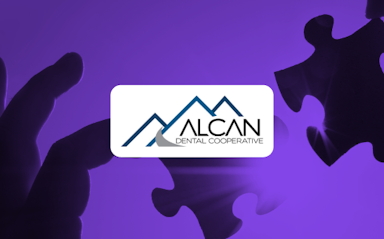Dental Billing Outsourcing - A Walkthrough
Contents:
- The Bigger Picture
- Impact on Staff and Cash Flow
- Dental Billing & Patient Care Experience
- The Complexity of Filing Dental Claims
- Malicious Intent and Human Error in Dental Billing
- Why Dental Billing Outsourcing is a Viable Alternative
- Benefits of Outsourcing Dental Billing
- Things to Consider While Outsourcing Dental Billing
- Conclusion
The Bigger Picture
Challenges in dental insurance billing largely occur between insurance carriers and dental practices. While a practice seeks to collect payments from carriers, insurance companies reject claims that don’t fall within their parameters of acceptance, and this happens often.
Add the complexity of dental claims processing to that, and we can see an average practice forfeiting around 9% of its yearly production to uncollected insurance revenue. If you take a moment to think about it, this is revenue that has been rightfully earned and owed to the practice.
When you crunch the numbers, the ramifications are astonishing.
Annual revenue generated by an average dental practice is around $1,500,000
The average annual revenue lost in uncollected insurance benefits is around $135,000
Average uncollected revenue over 30 years: $4,050,000
To add insult to injury, to write off the debt as uncollectible, a dental practice has to clear audits by the IRS and prove that it has taken reasonable steps to collect the debt but was unable to do so.
Impact on Staff and Cash Flow

The complexity of the dental billing process has made this ‘task’ into a full-time skill-based ‘job.’
Considering the range of responsibilities handled by staff, such as engaging with patients, presenting treatment plans, answering phones, keeping the schedule full, managing staff, and maintaining the office, it becomes difficult for them to contend with all that is required.
This includes preparing and submitting insurance claims, appeals, and follow-ups on receivables. Even the most committed office managers inadvertently have a negative impact on cash flow.
A general approach to dental practices that are considered efficient is to deal with claims in batches.
They set aside one day in a week or a month for these tasks.
The flip side of such an approach is that many claims and payments get delayed, with missing or incomplete information that stacks up the pending paperwork.
Outside the most apparent impact on cash flow, delayed submissions result in a wasted investment of time and efforts of your staff.
Pulling together missing or revised information can set them up against claim deadlines and appeal processes that might not always yield results.
The strain on time for your staff resources sets them up to unsuccessfully contest a commonly acknowledged ‘fact’ – delayed collections with outstanding balances over 90 days are unlikely to get settled.
But let’s say that you are able to afford a qualified professional who handles nothing else but dental billing and coding and A/R collections.
Even if this were the case, instances when your employee is on extended leave or quits their job leave you at a disadvantage with the added investment of hiring, onboarding, and training new staff.
These short-term setbacks have long-term consequences.
Meanwhile, your collection mechanism grinds to a halt and severely impacts the cash flow at your practice.
Dental Billing & Patient Care Experience
Another high-impact obstacle to dental billing is its impact on your patients.
While you prioritize patient health, a typical patient generally prioritizes their finances before health.
Your patients depend on you to help them navigate the maze of insurance benefits they are entitled to.
This is understandable as it’s difficult for a common consumer to comprehend their Explanation of Benefits (EOBs).
Undoubtedly, accurate financial processes are a large part of the patient experience.
Any errors regarding benefits coverage or surprises regarding out-of-pocket payments, irrespective of whether the fault lies with you, erode patient trust.
Once a patient loses trust, it’s difficult to patch it back up.
The Complexity of Filing Dental Claims

Inarguably, filing dental insurance claims and appeals is a complex process. Let’s look at the following figures to understand its scope of complexity better.
250+ insurance companies are offering individual and group dental insurance.
Each has its own befuddling prerequisites, claim requirements, and benefit limits.
While filing, there are 700+ dental codes and over 10,000+ codes for specialists and medical billing.
To complicate matters further, you must deal with constantly changing state and federal laws and regulations, followed by a diverse range of appeal processes for every insurance company.
Malicious Intent and Human Error in Dental Billing

Having adequate checks and balances in place is a wise business practice.
Especially when you consider that two-thirds of all dental practices in the U.S. have reported being a victim of fraud or embezzlement.
Instances of intentional fraudulent activities, such as upcoding or billing for services not rendered, can lead to financial losses and tarnished reputations.
On the other hand, honest mistakes in coding, documentation, or data entry may result in claim denials and delays in reimbursement.
To mitigate these risks, dental practices must implement stringent internal controls, conduct regular audits, and invest in staff training to ensure compliance and accuracy in dental coding and billing procedures.
Vigilance and diligence are key to maintaining ethical practices and financial stability.
Why Dental Billing Outsourcing is a Viable Alternative

To excel in dental insurance billing and payments requires knowledge, experience, and efficient processes.
Challenges in maintaining the right staff and expertise, managing staff turnover rates, and the ever-evolving complexities of the insurance ecosystem, makes outsourcing dental billing a viable alternative.
The core responsibilities handled by your practice naturally make it difficult to provide uninterrupted time, attention to detail, and the consistent focus required for insurance collections.
Hence, seeking a dental billing support provider with high-caliber staff, round-the-clock support, and an excellent track record is vital.
The logical next question is about the cost viability of outsourcing dental billing. An objective cost vs. benefit analysis will provide the data necessary to make the right decision.
For instance, a full-time employee trained in EOBs and A/R management will cost around $20/hour.
This cost becomes significantly higher if you recruit highly experienced individuals.
The annual cost of having a full-time employee will be at least $36,000 or higher.
This is excluding benefits, taxes, or other compensation.
A good exchange is to invest $36,000 a year to collect $135,000 in uncollected revenue.
That said, the comparative costs of outsourcing dental billing services are lesser and provide immense value returns.
Benefits of Outsourcing Dental Billing
The most evident benefit of outsourcing is an increase in annual revenue collections.
Dental billing services include patient enrollment, eligibility checks, claims submissions, dental coding, billing charge entry, A/R follow-up, payment posting, and denial management.

Things to Consider While Outsourcing Dental Billing
Before outsourcing dental insurance billing, it is important to understand the breadth of services you will receive from a dental billing company and how they will make it work.
This includes examining hidden costs and how their technology and processes integrate with your practice systems.
Other points of consideration include the contract terms and whether the company offers related services that would benefit you now or in the future.
Dental billing companies partner with practices that generate a sizeable amount of claims. This means your practice should meet its threshold for claims generated at a practice.
In such cases, consider partnering with other practices to cross their minimum criterion collectively.
Opting for outsourcing would still require certain billing activities that must be performed at your practice.
Assess if it’s viable to outsource all activities or if it makes sense to maintain certain activities at your practice.
Examples of this would be all billing-related patient communications and gathering patient information.
Another critical point of consideration is with regard to your working relationship.
Will you be assigned account managers that dedicatedly work alongside your practice?
You must conduct a thorough background check to assess the track record of the billing company and examine the insurance companies to which they submit claims electronically.
All said, it’s safe to request a trial run on all services offered before you decide to outsource.
An outsourced billing company should typically offer the following:
- Experienced professionals with expertise in medical coding and billing
- Access to a state of the art billing software
- Ensure that the billing systems are up to date
- Know how to change regulations and insurance procedures
- Provide in-house staff training on coding and billing rules
- A/R management
- Troubleshooting and timely communication with in-house staff when it comes to discrepancies in claims
- Provide on-demand performance reports and data charts
- Improve the success rates for appeals
Conclusion
Flawless and timely claims submissions are an integral part of practice revenue. When focused on providing quality dental services and patient care, it becomes hard to accept the loss of revenue from insurance billing. This is where outsourcing dental billing becomes a significant consideration. With an experienced company handling billing-related activities, you can focus on what you do best. Improve the quality of your dental procedures, build a unique patient care experience, and develop long-term relationships with your clients. You can continue to do what you do best without worrying about uncollected revenues.





